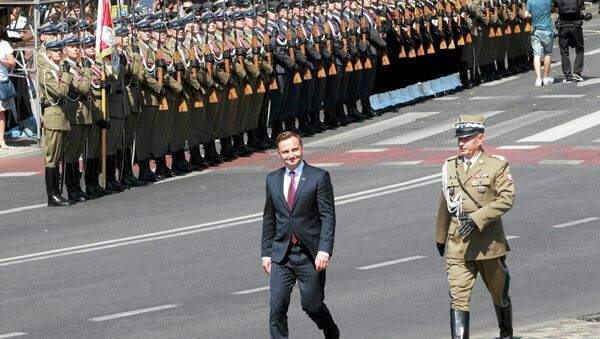The general emphasized that "this approach stands in stark contrast to the populist policies of [former] Foreign Minister Radoslaw Sikorski and President Bronislaw Komorowski, who presented slogans, words and heroic rhetoric with no concrete action to back them."
Polko agreed with President Duda's estimate that NATO's eastern members are treated as 'second-class' due to the absence of significant NATO infrastructure in Eastern Europe. "A situation has emerged where Moscow is increasingly flexing its muscles and, basically, does whatever it wants, while NATO, as far as I see it, has become much weaker than it was when we entered into it," Polko lamented.
The general called the project to expand NATO's rapid reaction force nothing but "noisy exercises with the large-scale support of the media," noting that "after all, the majority of the forces involved in these rapid reaction force exercises were Polish; in other words, it was not a demonstration of the Alliance's military capabilities, but an event to rally the public, which could hardly scare Moscow."
The general emphasized the importance of stationing permanent NATO military bases in his country, noting that "if our membership in NATO is to have any meaning, we should have the forces on our territory capable of intimidating the potential enemy. Otherwise, we will remain a 'paper tiger'."
Polko warned about Russia's supposed craftiness in challenging NATO's resolve. Commenting on Germany, France and Italy's past cooperation with Russia and the Russian leadership, the general suggested that these countries have "gotten their own concepts confused. They knew that Putin was no good, but, looked for accord, hoped that he would change. If Poland voiced criticism of this naïve approach, the countries which are called the locomotives of the European Union did not take it seriously. This demonstrates the conformity of these countries, out of which the current situation has come about. They have no idea how to stop Putin and to get out of this trap."




